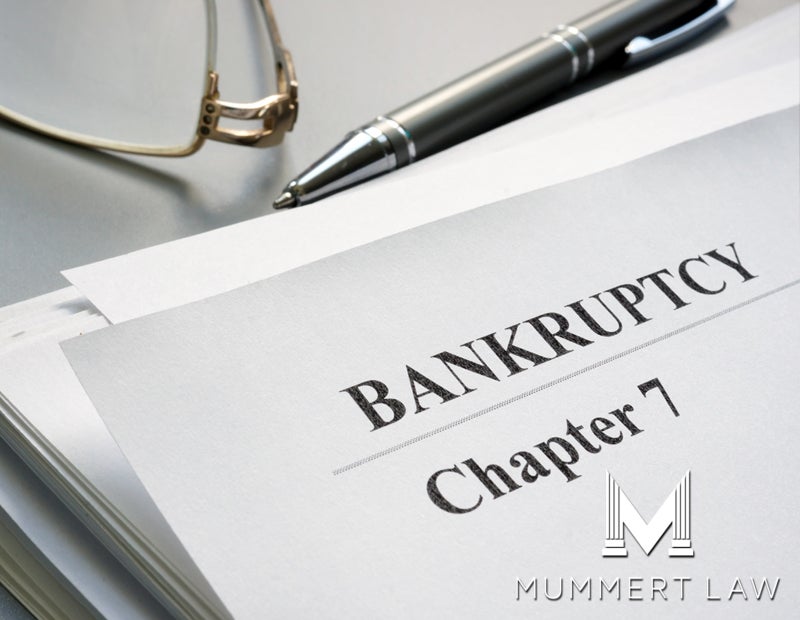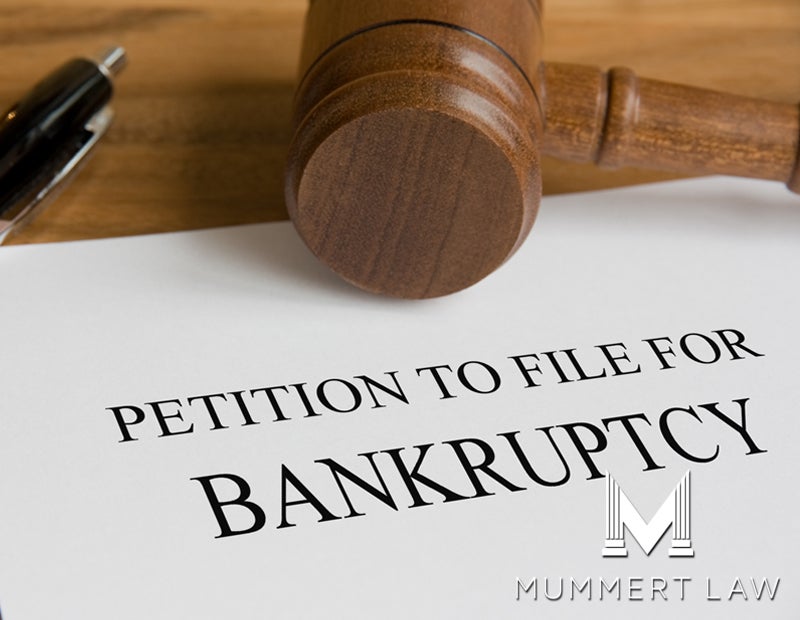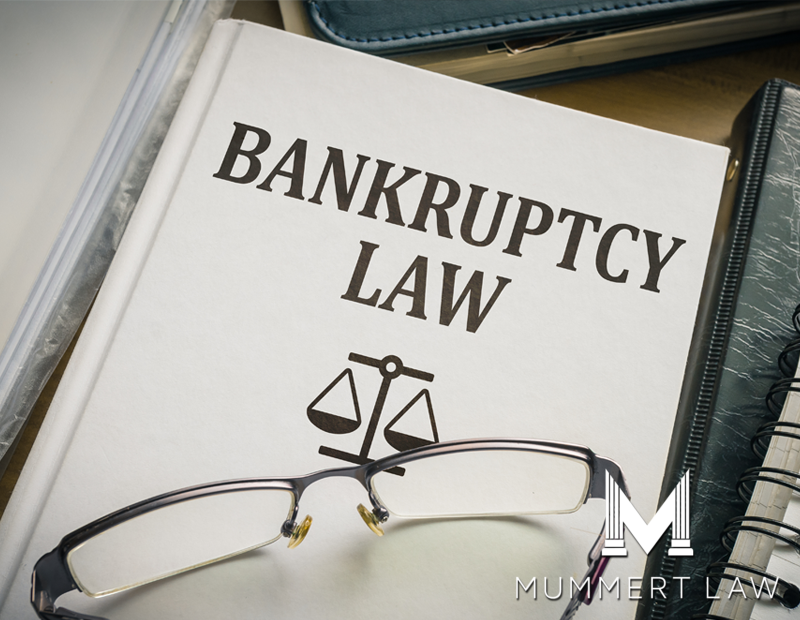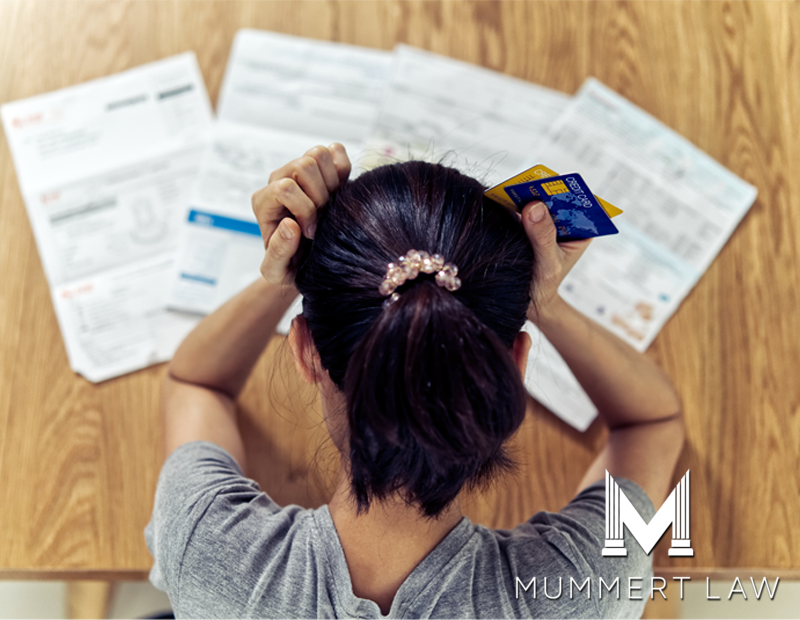-
Understanding Your Bankruptcy | The Reaffirmation Option

The process of bankruptcy includes altering or breaking the agreement you made with your creditors in the first place. Sometimes it’s necessary to do this to keep your financial footing. How does it affect your secured debt? Secured debt is the money you borrowed to buy property… ranging from your car to your furniture, even your jewelry. Let’s take a look at the reaffirmation option and how it affects your ability to keep your purchases within your bankruptcy.
Reaffirmation – Keep Your Property
In a Chapter 7 bankruptcy filing, to reaffirm your debt basically means that you agree that this is a valid debt and that you owe the money to your creditor, and you will continue to pay on this debt even after your bankruptcy case ends. In essence, it means that particular debt is not part of the bankruptcy and will not be discharged.
Some Conditions of Reaffirmation
If you are in delinquent status on the debt at the time of the Chapter 7 filing, you will not be able to reaffirm the obligation. The trustee may seize the property and sell it and use the money to pay off the unsecured debt owed to other creditors. Your lender could also file a Motion for
Relief From Stay to reposse or foreclose upon the property.
Even after you reach a reaffirmation agreement with the lender, it must be filed in court as part of your bankruptcy to be considered valid. The judge must also decide if you will be able to make the payments that were negotiated and stated in the agreement.
It is possible that the judge will reject your reaffirmation agreement if it seems like it will cause you or your family financial hardship, or that you won’t have the money to make the payments as stated. Before a Judge rejects the agreement, a hearing will be held where you will explain to the Judge why you need to reaffirm this debt and how you plan on paying the debt each month.Important Reaffirmation Strategy Considerations
You may be in a situation where you will need to keep specific property that has been purchased with secured debt. The loan agreement may stipulate that the creditor can seize your property if you do not make the payments as agreed. STAY CURRENT on this debt. It is unusual for a creditor to agree to a reaffirmation commitment if you are behind on payments. This may prevent you from having the option of reaffirmation.
Remember that reaffirmation leaves you with remaining debt after your bankruptcy, so proceed with caution. When making your decision, be sure to get advice from your attorney on the following:
- Is this the only way you can keep the property?
- Will you realistically be able to pay the balance?
- Can you get the creditor to readjust the balance due to give you breathing room?
Reaffirmation is Only One Option
When you’re filing Chapter 7 bankruptcy, you have options. It’s essential to get good legal advice before filing, to ensure that everything is processed correctly and in your best interest. At Mummert Law, we help people every day to reduce and reorganize their debt through bankruptcy proceedings and negotiations with creditors outside of bankruptcy. Contact us today for your consultation appointment. Let’s sit down and discuss your situation. We can help you too!
-
Bankruptcy Chapter 7 Versus Chapter 13

These days, finances are complicated for many people. We see record numbers of new bankruptcy cases across the state. If you’re not familiar with the different types of bankruptcy filings, it can be confusing. Today, we’re going to talk about the differences between Chapter 7 bankruptcy and Chapter 13 bankruptcy. You’ve probably heard of both types but may not understand the difference between the two. We’ll clarify that now.
What are the Similarities Between Chapter 7 and Chapter 13 Bankruptcy?
Both types of bankruptcy can bring relief from a crushing debt load that you are unable to handle, but they do it in very different ways. Both strategies can be done on your own but are better handled by competent attorneys that specialize in bankruptcy. Bankruptcy is a complicated procedure, and not for amateurs.
What are the Main Differences Between Chapter 7 and Chapter 13 Bankruptcy?
The goal of Chapter 7 bankruptcy is to eliminate most, if not all, of your debt. The debt is “discharged” through the process, and you no longer owe it to the creditor. However, the Trustee may be able to sell assets for the benefit of the creditors.
Chapter 13 bankruptcy is different, and it serves as a way to reorganize your debt, make reasonable arrangements to pay off what you can over time, and make it more manageable for you. If you have a debt that could be sold in Chapter 13, the Chapter 13 Plan most likely will let you keep that asset.Do You Have to Be a Business to File Chapter 7 or Chapter 13?
No, business entities other than sole proprietorships cannot file using the Chapter 13 option… only individuals or sole proprietors have this option. Chapter 7 can be used by both businesses and individuals. For individuals, you will eliminate the debt when you’re in over your head. For businesses, you will not receive a discharge, but you will put the world on notice that the business is shut down.
Are There Financial Restrictions for Chapter 13 and Chapter 7?
Yes, both types of bankruptcy filings have some restrictions. For you to file Chapter 7 bankruptcy, you must pass a means test, and your disposable income must be low enough. We must also protect the assets that you want to keep.
Eligibility for Chapter 13 is determined by the amount of secured and unsecured debt you are currently carrying.How Long Do Both Options Take To Receive a Discharge?
When you file for Chapter 7, it will most likely take approximately four to six months to receive your discharge of debt. Remember that Chapter 13 is more about restructuring than eliminating, so you will get your discharge when you’re finished making your arranged plan payments. The process usually varies between three to five years.
Weighing the Pros and Cons of Chapter 7 Bankruptcy
There are pros and cons to both Chapter 7 and Chapter 13. The main benefit of filing Chapter 7 is that it’s over relatively quickly, and most of your debts are discharged, meaning you can move on at that point. When you file Chapter 7, however, some of your property can be sold to pay down debts, and there’s no way to prevent repossession or foreclosure.
Looking at the Pros and Cons of Chapter 13 Bankruptcy
When you file to restructure your debt under Chapter 13 Guidelines, you can keep your property, and you’ll have up to five years to repay your past due car payments or mortgage payments. On the downside, it will take three to five years to complete your Chapter 13 bankruptcy, and you’ll end up paying back a portion of unsecured debts as well.
How Do I Figure Out Which Method is Better For Me?
If you are not sure which filing option would be better for you, Mummert Law can help! We are available for a consultation, at which time we’ll sit down together, evaluate your position, and determine the best way to proceed. Don’t go it alone when it comes to bankruptcy. Make your appointment with Mummert Law today!
-
Are All Bankruptcies Created Equal?

Of course, they aren’t. Just as each individual and their circumstances are unique, so are bankruptcy cases. This is not the time to shop for the bargains or use a Groupon. Bankruptcies are serious matters and deserve the best attention and services available. The amount of paperwork involved in processing a bankruptcy claim has increased over time. It now requires over 50 pages of information to file your petition. Here are a few things to consider if you are thinking about filing for bankruptcy.
Do You Know the Best Time to File?
As your lawyer, I recognize timing is a critical part of preparing your petition. Filing in July and August is the best time to get your filing done. This is typically several months after you’ve received your tax refund, and there are still five months remaining until the end of the current tax year and next return filing. As your bankruptcy attorney, I work with you to develop the most effective filing strategy.
Bankruptcy – Getting Your Ducks in a Row!
It is of the utmost importance to make sure your file is complete and organized. If your documents are in order, it makes it easier for processing when all parties have the answers and information they need. An organized file will make it easier and quicker for the Trustee to arrive at a decision about whether you are deserving of a discharge of debt.
Who Is Preparing Your Bankruptcy Petition?
This is a significant difference you will see as you are reviewing law firms. When you hire Mummert Law, I’m signed on personally to prepare your petition. I do not ask a paralegal to do this critical work for me. I want to be familiar with the ins and outs of your case and to know it thoroughly. Once the documents have been prepared, I sit with you, and we look over them together. We will check for understanding, and discuss anything you’re not sure about. At this meeting, I can let you know what areas are concerning to me, and what you can expect when we file.
Personalized Service
I do not treat any bankruptcy case as “cookie cutter.” Every bankruptcy I’ve ever filed is entirely different from every other one. Each one has its own challenges. My responsibility is to make sure you are in a good position as we move through the stages. My goal is for a positive outcome.
But, I also serve as a trusted advisor who advocates for you at every turn. Bankruptcy is a stressful experience for most people, and I work to ensure it’s as stress-free as possible. Organization, strategy, and attention to detail can save so much time in the process, and that’s what you’ll get when you hire me to help you with your bankruptcy.
If you are considering filing for bankruptcy, and want to explore your opportunities, call me today, and let’s sit down and talk about your case.
-
Is This the Right Time to File for Bankruptcy?

In these tough economic times, many folks are worried that they might not make it. It is pretty normal these days to worry about foreclosures, repossessions, and creditors bothering you. Bankruptcy might be a good option for you, but is it the right time to file? Let’s assess the situation and see where you stand.
How’s Your Financial Health?
There’s always an emotional aspect of financial trouble. For this reason and others, people tend to hide their heads in the sand, denying that there’s a problem. Here are some telltale signs that you should seek some professional help to bring your finances under control.
- You keep getting calls from bill collectors
- You are having trouble making minimum payments on your credit cards
- Thinking about your finances makes you feel out of control or scared
- You’re not sure exactly how much you owe
- You are using credit cards to pay for everything, including food, household supplies, and gasoline
- You’re thinking about debt consolidation
Reasons to File for Bankruptcy Now
- You might have an immediate need to file bankruptcy to avoid financial disaster. Do any of these apply to you?
- You have been unemployed for a long time, and are not eligible for unemployment
- You are about to have your car repossessed
- You are having your wages garnished
- You’re facing eviction from your home
- Your mortgage holder has started foreclosure proceedings
- Your prospects are good for starting a higher paying job… you might want to file while your income still qualifies you
- You are getting ready to move to another state that has less favorable exemptions for bankruptcy
- You are expecting a windfall in the future, but not immediately
As you see, there are many factors to consider when you’re thinking about filing for bankruptcy. This is why getting sound legal advice from a lawyer is a good idea. Bankruptcy laws can be complicated and difficult for the average person to navigate.
Planning is Essential – Timing is Everything
In some cases, it makes sense to delay filing for bankruptcy if you can hold things together for a while, and do not have a crisis. Sometimes you need to file to get immediate relief. Either way, it requires advance planning and a good lawyer who will help you understand your best strategy, based on your current situation. Some reasons you may want to take a closer look at your options are:
- You are moving to another state that has more favorable bankruptcy exemptions
- Your job position is changing, and you will be making less money
- You’ve repaid a debt to a relative within the last year
- You have recently (within the last year) purchased luxury goods
- You are waiting to receive a large income tax refund
These are just a few reasons why you need to plan your filing properly and discuss with your attorney how to address these issues. Bankruptcy is not a simple action. You need help and guidance if you want the best result from your bankruptcy case.
Mummert Law has many years of experience handling bankruptcy cases for clients. Call today, and let’s see what course of action makes sense to you.
-
Bankruptcy – The Automatic Stay

With the global pandemic of COVID-19, many people are having a hard time staying afloat. Others see a looming disaster in their finances coming down the road. One of the benefits of claiming bankruptcy now is the Automatic Stay, which can help you avoid action against you by creditors. Let’s take a look at some of the immediate problems that can be solved by the automatic stay.
What is an Automatic Stay?
Once you file bankruptcy, creditors are required to stop the action to collect the debt. This means that they cannot bother you on the phone, send collection notices through the mail, evict you, initiate a lawsuit against you, contact your employer to garnish your wages, turn off your utilities, or seize your bank account. If a creditor does continue to contact you after the filing Bankruptcy, they can be found to be in contempt of court and may owe you money.
How Does an Automatic Stay Affect Your Mortgage?
One thing of which you must take note… if you want to keep your house, you must continue to pay the mortgage. If you don’t pay, your mortgage company can petition the court to lift the automatic stay for them to start/continue the foreclosure proceedings. This action does not happen immediately and can buy you some time to work things out with your mortgage company.
In a Chapter 7 bankruptcy, you should be able to either catch up on payments in a hurry or work something out with your mortgage holder. If you are filing for a Chapter 13 bankruptcy, you will be allowed to put the past due payments into a 60-month payment plan as well as seek a loan modification.
What Does an Automatic Stay Do If You’re About to be Evicted?
The automatic stay will temporarily halt the process of being evicted. If the Landlord has not obtained a judgment for possession, you can save your tenancy. You will need to take immediate action on whether to assume or reject the lease, as well as how to catch up on past due payments. So, if you only file for bankruptcy, it will only delay your eviction, and not prevent it entirely unless you properly plan for it.
When Your Car is Going to Be Repossessed, Can an Automatic Stay Help?
Filing for bankruptcy will stop the repossession process, but once again, only temporarily. Similar to delaying a foreclosure on your home, when filing for Chapter 7 bankruptcy, you will need to bring your auto loan current in short order. You may be able to redeem your car for its current fair market value in Chapter 7. A Chapter 13 bankruptcy will allow you to pay post-petition arrears over time, but you will also need to make your regular car payment too. You may also be able to reduce the principal on your car loan if you meet specific requirements.
Wage Garnishment and the Automatic Stay
Once you file for bankruptcy, the automatic stay will stop wage garnishment, if you have any garnishment orders in place. You may also be able to get back money that was garnished 90 days before filing for bankruptcy.
Will the Automatic Stay Help with Lawsuits for Debts?
The lawsuit will be stopped when you file for bankruptcy under the automatic stay.
An automatic stay is only part of the bankruptcy process. The first step if you are considering filing for bankruptcy is to seek legal advice. With your lawyer, you will be able to evaluate your position, and they will work with you to determine your best course of action.There are good reasons for and against filing bankruptcy. Legal advice can help you determine if bankruptcy is a good option, whether you should file for Chapter 7 or Chapter 13, and if this is the best time for you to file.
Contact Us Today at Mummert Law if you need help learning more about filing for bankruptcy in Maryland.

